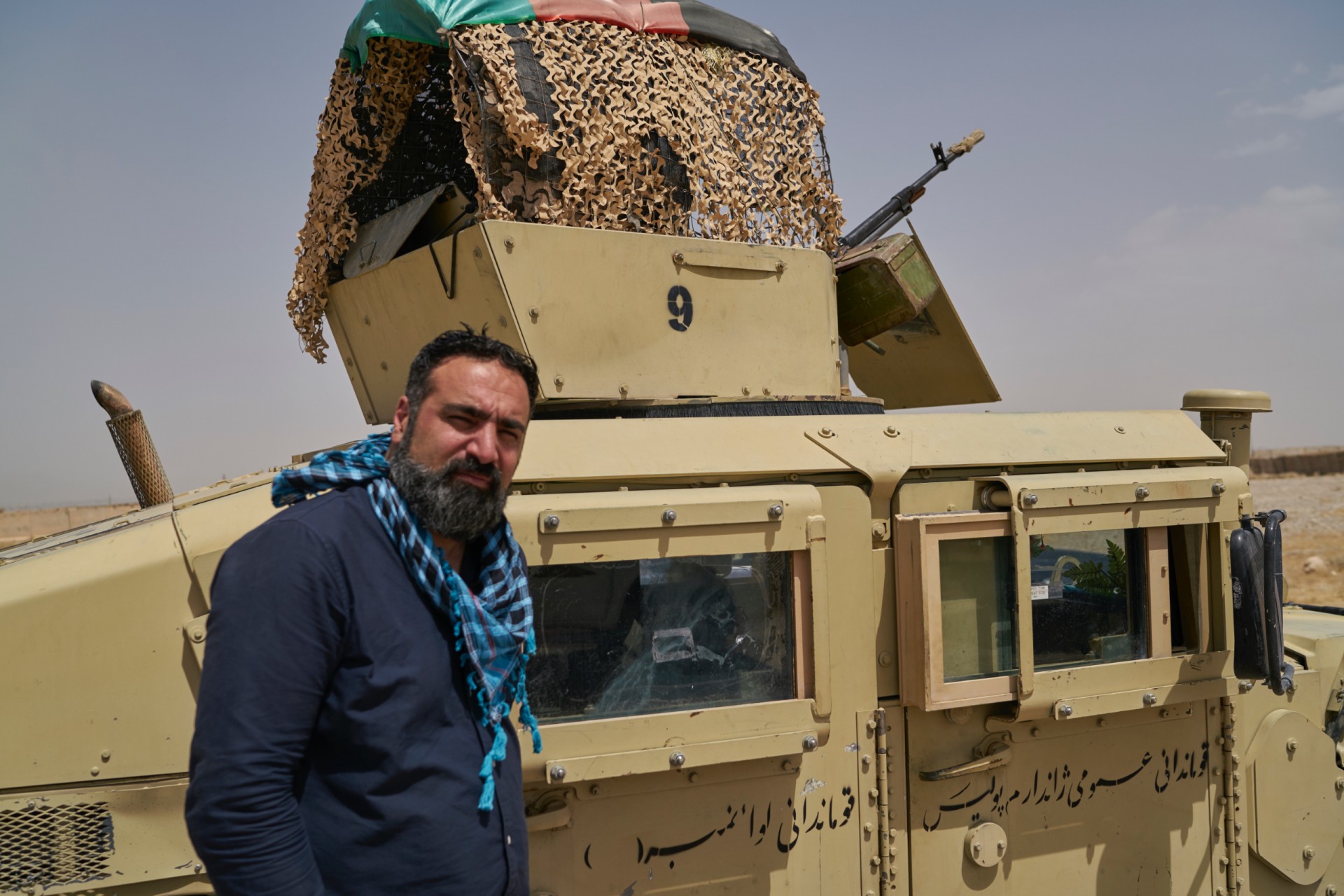In the first of three sessions, documentary maker and journalist Sinan Can talks to us about the Middle-East, a region where the majority of arrivals to Lesvos come from.

In 2015, just over 1 million people fleeing war and disaster arrived in Europe, via Greece, Italy and Spain. Our Movement came about to ensure the dignity, health and well-being of those people seeking safety in Europe, to help the places they arrived to cope with this sudden influx.
Why and how did this refugee crisis happen?
We talked to Sinan Can to find out. He's spent the last eight years making documentaries on the most hard-hitting topics in the region - including, among others – the Armenian genocide (Blood Brothers), the Netherlands intervention in Afghanistan (Our Mission) and the recapturing of Mosul in Syria (In the Trail of ISIS). We met with him at his office in Hilversum earlier this month, to discuss his experiences and his knowledge about the region.
“The problem starts of course with conflicts and wars.” Sinan tells us. “We had the Arabic Spring. People who we never saw were on the barricades, and they were asking for more freedom, for dignity, for equality.” 'The Arabic Spring' that Sinan refers to, were a series of uprisings that took place in the Middle-East, for freedom and democracy. They started with protests in Tunisia, but spread to Egypt, Syria, Libya and Yemen.
Being of Turkish and Kurdish descent, Sinan has a personal connection to the Middle-East and remembers the period of time optimistically. “We were very hopeful and happy that something was changing. One by one, the dictators fell.”
Rather than bring about positive change and democracy, the Arabic Spring eventually led to war. President Assad of Syria, fought against protestors and eventually armed groups who wanted leadership in the country. The fact that there were so many different sides fighting, complicated the conflict. “If it's two sides it's easy” says Sinan. “But if there are a lot of groups you lose that element of who's friendly, who's normal. Millions of Syrians fled.”
The conflict in Syria officially started in 2012, by 2014 one of the main opposition groups - ISIS - managed to gain control of areas in the north-east of the country, even spreading to Iraq and Afghanistan, making pre-existing sectarian conflicts in those countries even worse. These are still, the three top places, arrivals to Europe come from.

As many books and analyses of conflict in the Middle-East as there are, the most you can learn about the region, is from meeting people from there. The Middle-East is intricate, the small stories are what captures that best he argues.
“The most thing I learned was by eating, drinking, laughing, crying with people, listening to them. Because we have different truths.” The sectarian nature of the conflict, created different perspectives and experiences of the war, and in turn different ways to deal with it. It's important to try and understand them all. Even when they are difficult to confront.
In the city of Falujjah in northern Iraq, Sinan met a man who lost four children to the effects of chemical bombs that contained Uranium and Phospher, dropped by the US. His grief and anger, drove him to join ISIS. “I don't agree with it,” Sinan tells us “Because at the end you will make other people suffer. [But] It's not black and white. What's important is to see it from different perspectives.”
Not everyone reacts to the conflict and loss in the same way. “Another man I met, he lost all his children to ISIS and then he started smuggling children from the caliphate every weekend. This one man alone saved 300 children. He could have said to hell with the world.”
In the middle of all of this, are the majority of people who have had enough of fighting and simply want to lead ordinary lives, in a way that may never be possible in the places they were born Sinan tells us. “Their grandfather, father, they and their children grew up with war. Maybe their grandchildren will grow up with war. A normal person has to understand, you can't make a life in many places there.”
Any contribution helps us in our mission to provide a dignified, innovative and sustainable response to the refugee crisis that benefits both refugees and host populations.
I want to donate
Choose an amount
I would like to donate using
Payments are securely processed using Buckaroo. No payment details will be stored by us.
